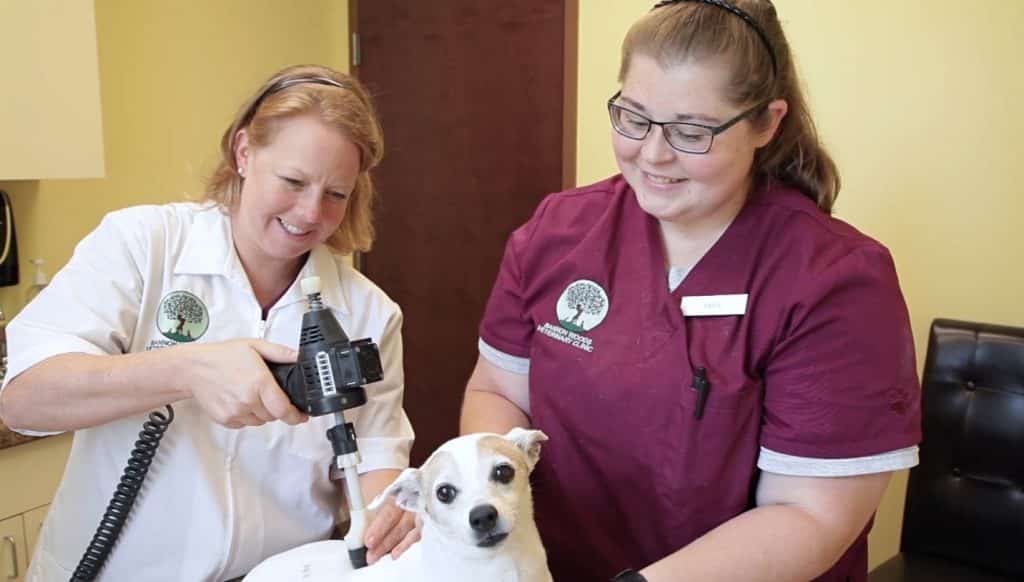What is chiropractic care?
Chiropractic care is a holistic treatment for joint dysfunction. The goal of chiropractic treatment is to restore normal joint motion, stimulate neurologic reflexes, and reduce pain and muscle spasm. An imbalance, or “subluxation”, can be caused by a single traumatic event, or more commonly, through microtrauma or repetitive stress injuries from daily activities and performance. This imbalance can start at the level of the spine, or may start with one limb and cause secondary/compensatory pain throughout the body. Lower limb injuries cause an alteration in gait, which may subsequently overwork or injure supporting musculoskeletal structures.
Who will benefit from a chiropractic adjustment?
- Performance Horses – In the performance horse, chiropractic care addresses subclinical conditions or abnormal biomechanics/conformation that can cause future debilitating injuries and impede peak performance.
- Rehabilitation – Regular chiropractic adjustments are highly beneficial to horses and small animals experiencing long periods of confinement due to injury or surgery, and can greatly enhance the rehabilitation process.
- Older Patients – Older pets are susceptible to loss of vertebral column flexibility, joint degeneration, and loss of muscle strength. Aged pets also have increased healing times and increased chances of having chronic conditions or compensations. While chiropractic cannot reverse severe degeneration or overt pathology, it can help keep these patients more comfortable.
- Foals – Newborns should be evaluated within the first few days of life due to strain during the birthing process. Mares that have recently given birth can also be evaluated at this time.
- Equine Behavioral Issues that may respond to chiropractic include:
- Discomfort when saddling/riding
- Abnormal posture when standing
- Hollowing out back when riding
- Tail wringing, head tossing, bucking
- Resisting/refusing jumps, lateral work, collection
- Muscle atrophy/asymmetry
Serious diseases requiring conventional veterinary medical care must be ruled out and treated before routine chiropractic treatment is begun. However, chiropractic care contributes to the rehab of most post-surgical cases or severe medical conditions by helping in the restoration of normal musculoskeletal function.

How fast will my pet respond to chiropractic treatment?
Chiropractic is much more effective in the early clinical stages of disease versus where reparative processes have been exhausted. Usually, conditions with an acute onset respond rapidly and have a good prognosis, whereas chronic conditions usually take long-term treatment or rehabilitation. Patients with chronic injuries may gain only short-term relief. Each patient is unique, and a program of care will be discussed following the initial evaluation.
